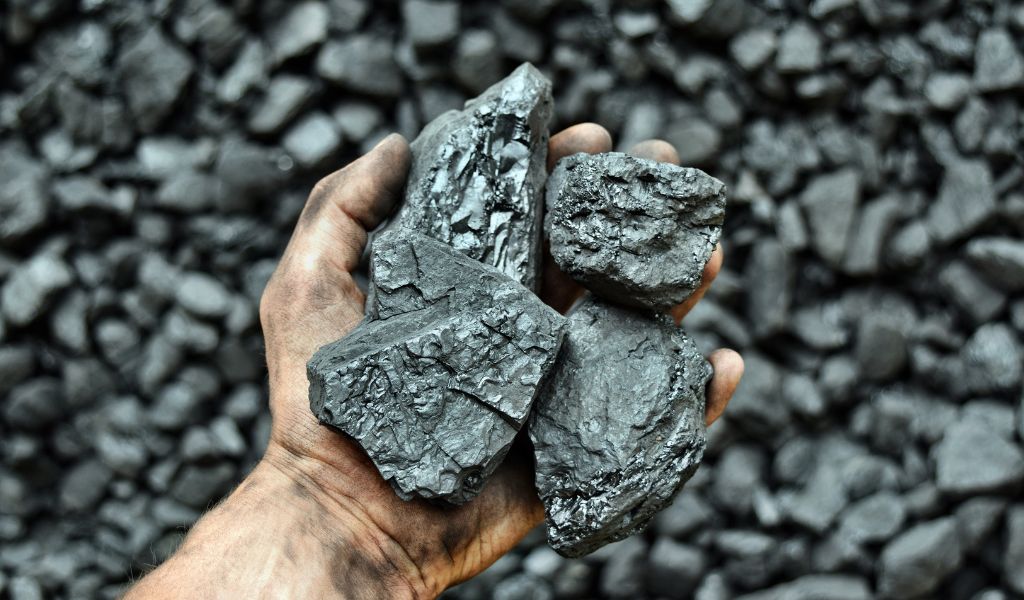Dogs are known to have curious and adventurous personalities, and they love exploring their surroundings, which is why pet owners should always be vigilant and keep a close eye on their pets.
However, despite our best efforts, accidents can happen, and our dogs may ingest things they shouldn’t.
One common concern among dog owners is what happens if their dogs eat coal.
In this article, we’ll discuss the potential risks and dangers associated with dogs eating coal, as well as what to do if your pet accidentally ingests it.
If your dog eats coal then he can become seriously unwell. You should keep coal out of reach and, if your pet does manage to eat some, then monitor his behaviour and call your vet for advice.
What is coal?
Coal is a fossil fuel that is used for various purposes, such as heating, generating electricity, and industrial processes.
Coal is made up of carbon, hydrogen, oxygen, nitrogen, and sulphur, and it’s formed over millions of years by the decomposition of organic matter.
Coal comes in different forms, including anthracite, bituminous, and lignite.
Can dogs eat coal?
No, dogs should not eat coal under any circumstances.
Coal is not food, and it has no nutritional value for dogs. In fact, coal can be extremely harmful to dogs if ingested.
Dogs can accidentally ingest coal by chewing on coal pieces or coal-based products, such as charcoal briquettes or activated carbon.
The effects of coal on dogs
• Coal is a fossil fuel with no nutritional value for dogs.
• Ingesting coal can cause gastrointestinal blockage, respiratory issues, and poisoning in dogs.
• If your dog has eaten coal, contact your veterinarian immediately and observe their behavior for signs of distress or discomfort.
• Avoid inducing vomiting in dogs that have ingested coal.
• To prevent accidental ingestion of coal, store it properly and keep away from areas where your dog has access to it.
What happens if dogs eat coal?
If a dog eats coal, it can cause serious health problems, including:
Gastrointestinal Blockage: Coal is not digestible, and it can cause blockages in the gastrointestinal tract, which can lead to vomiting, diarrhea, and abdominal pain.
Respiratory Issues: Coal dust can cause respiratory problems in dogs if inhaled, leading to coughing, wheezing, and difficulty breathing.
Poisoning: Coal contains various harmful substances, such as heavy metals, sulphur, and hydrocarbons, which can be toxic to dogs if ingested.
Symptoms of coal poisoning in dogs include lethargy, vomiting, diarrhea, and loss of appetite.
What to do if your dog eats coal?
If you suspect that your dog has ingested coal, it’s essential to take immediate action.
Here’s what to do:
Contact Your Vet: Call your veterinarian right away and explain the situation. Your vet will guide you on the next steps to take.
Observe Your Dog: Keep an eye on your dog’s behaviour and symptoms. If your dog shows any signs of distress or discomfort, take them to the vet immediately.
Don’t Induce Vomiting: Unlike some other toxic substances, inducing vomiting in dogs that have ingested coal is not recommended.
This is because coal can cause blockages in the gastrointestinal tract, and inducing vomiting can worsen the situation.
Provide Supportive Care: Depending on your dog’s symptoms, your vet may recommend supportive care, such as intravenous fluids, anti-inflammatory medication, or hospitalisation.
Preventing accidental coal ingestion
The best way to prevent your dog from ingesting coal is by keeping all coal and coal-based products out of reach.
Here are some tips to prevent accidental coal ingestion:
Store Coal Properly: Store coal and coal-based products in a secure location where your dog cannot access them.
Keep Coal-based Products Away: Avoid using coal-based products such as charcoal briquettes or activated carbon around your dog.
Monitor Your Dog: Keep a close eye on your dog when they’re outside or in areas where coal or coal-based products are present.
Conclusion and final thoughts
In conclusion, dogs should never eat coal under any circumstances, as it can cause serious health problems.
If you suspect that your dog has ingested coal, it’s essential to seek veterinary care immediately.
Additionally, pet owners should take measures to prevent accidental ingestion of coal and other toxic substances.
By keeping hazardous materials out of reach and monitoring our pets closely, we can keep them safe and healthy.




